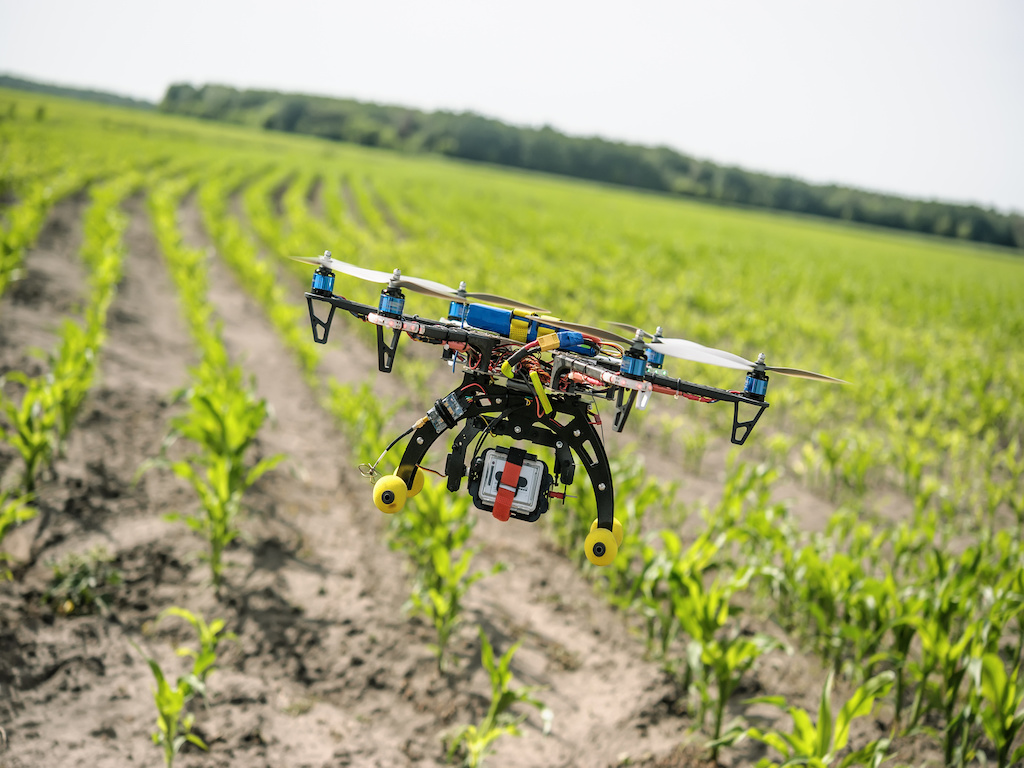The central government has redoubled its efforts to stimulate use of drones in agriculture. The strategy calls on the Directorate General of Civil Aviation (DGCA), the Ministry of Agriculture and the Central Insecticide and Registration Committee (CIBRC) to expedite applications and acceptance of drones.
“The DGCA, the Ministry of Agriculture and the CIBRC are working together to rapidly accelerate the applications and acceptance of drones in the agricultural sectorincluding crop health monitoring and soil nutrient spraying,” said Ravi Prakash, a senior CIBRC official.
Prakash made the remarks during a virtual event co-hosted by CropLife and NGO ThinkAg. He went on to say that drones were inexpensive and would help improve productivity.
The Council has received petitions from eight crop protection companies seeking permission to undertake drone studies, according to the report.
The CIBRC is a government agency responsible for overseeing the import, manufacture, sale, transport, distribution and use of insecticides. The Plant Protection, Quarantine and Storage Directorate oversees the Central Panel.
Other government agencies are also said to have joined the program. The National Plant Health Management Institute has created a ten-day training program for drone pilots to teach them how to fly and spray using these unmanned aerial vehicles (UAVs). The idea is pending approval by the DGCA, according to the institution.
A drone pilot will receive a certified drone pilot license which will be valid for ten years under the program. According to reports, the institute is planning to collaborate with other central and state universities and agricultural institutes for pan-India rollout.
Government initiative
It comes just a month after Finance Minister Nirmala Sitharaman called for exploiting ‘Drone Shakti‘ in his budget speech, adding that “Drone-As-A-Service (DrAAS) startups are the need of the hour.”
Add to that the fact that in February this year, Prime Minister Narendra Modi launched 100 Kisan drones to spray crops with pesticides across the country.
The Ministry of Civil Aviation (MoCA) last month enacted sweeping regulatory changes to boost the domestic drone industry by banning the import of drones with immediate effect, with limited exceptions.
Drone Shakti
Drones spraying pesticides could alleviate a number of challenges for the industry. It has the potential to alleviate the sector’s labor shortage, especially during peak harvest periods. Drones could also help with agricultural valuation and the digitization of land records, as well as provide a new source of jobs in the country.
Drones can be particularly profitable in labor-intensive industries, and they could help “small marginal farmers” increase production while reducing expenses.
On the other hand, it faces a number of challenges, including a shortage of experienced personnel and drone maintenance issues. A lack of regulation for pesticide spraying also exists, which could have serious consequences for farmers who are exposed to chemicals from above.
Establish an ecosystem
Meanwhile, the Center appears to have gone too far in policy adjustments to the sector. In September last year, the Center announced a Production Linked Incentive Scheme (PLI) of INR 120 crore to encourage domestic manufacturing of drones.
Furthermore, the government has liberalized restrictions on drones by adopting a plethora of measures, including the new UAS 2021 rules and their subsequent revision this year, to speed up the use of drones in the country.
Meanwhile, industry bureaucracy continues to stifle entrepreneurial energy and mainstream acceptance. The area remains in limbo, with numerous permits and no-go areas marked off due to security risks.
The number of these startups operating in the country is a strong indication of this. There are only 180 drone startups in India, which have raised a total of $27 million over the years.
However, the general sentiment seems encouraging, with the Center aiming to move the industry forward through initiatives and legislation that will reduce barriers for businesses and the general public.
The end result is visible to everyone. On March 10, RattanIndia launched a wholly owned subsidiary, NeoSky, which will develop, produce and distribute consumer micro drones across India, with an initial outlay of INR 100 crore. The company plans to start selling its products in the first quarter of 2023.
BharatRohan, a Delhi-based agritech startup, on the same day secured an unknown sum of seed capital for its drone crop monitoring service.
Moreover, even big Indian companies seem to be in love with the area. RIL, through its Bengaluru-based startup Asteria Aerospace, in which it holds a majority stake, has stepped up its intentions to be a top player in the region, according to media reports earlier this month.
In June last year, states like Karnataka, Tamil Nadu, Rajasthan and Punjab started testing long-range drone deliveries on a pilot basis. This was done to see if drones could bring prescriptions, shopping, and food orders to people’s homes.
Overall, the initiative is to be welcomed and has the potential to usher in a new era in the agricultural industry. Agriculture is seen as the backbone of the country, and it seems the project is an attempt to straighten out the twisted backbone of the country.











More Stories
Sri Lanka’s post-harvest losses in agricultural sector exceed Rs. 55 billion – – The island
SAU Vice-Chancellor emphasizes effective research in agricultural sector
Agriculture sector threatened by climate change, expert says – Pakistan